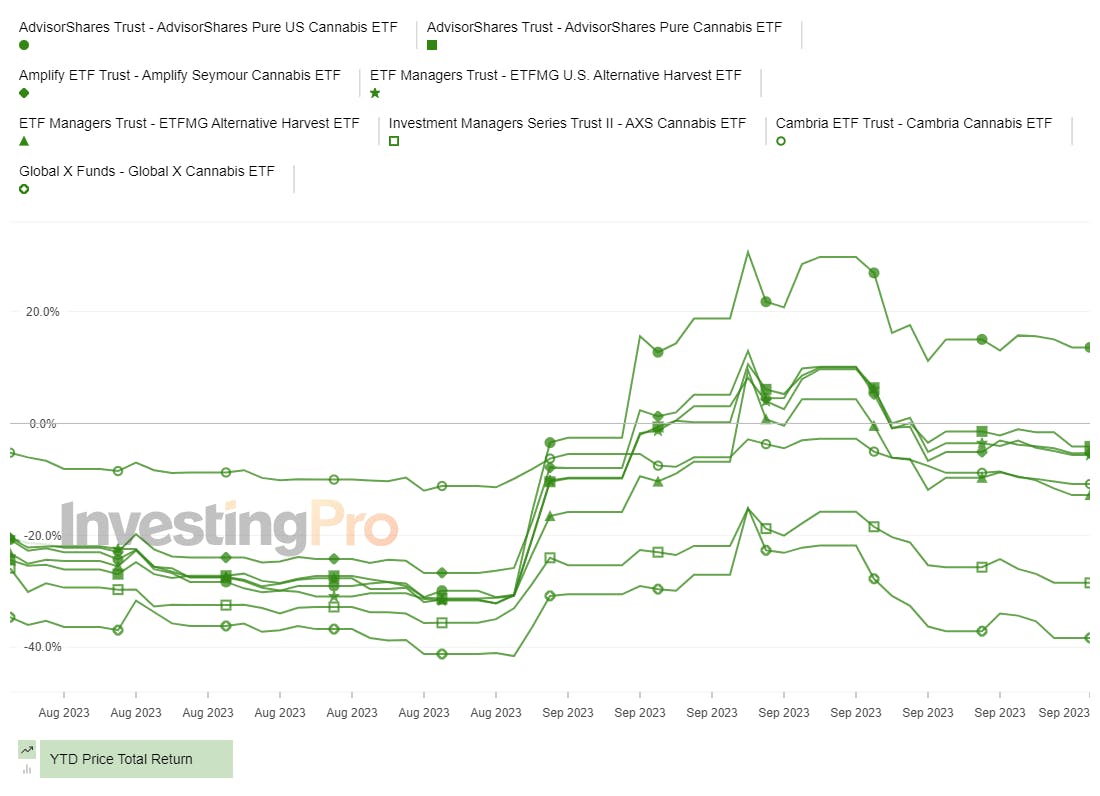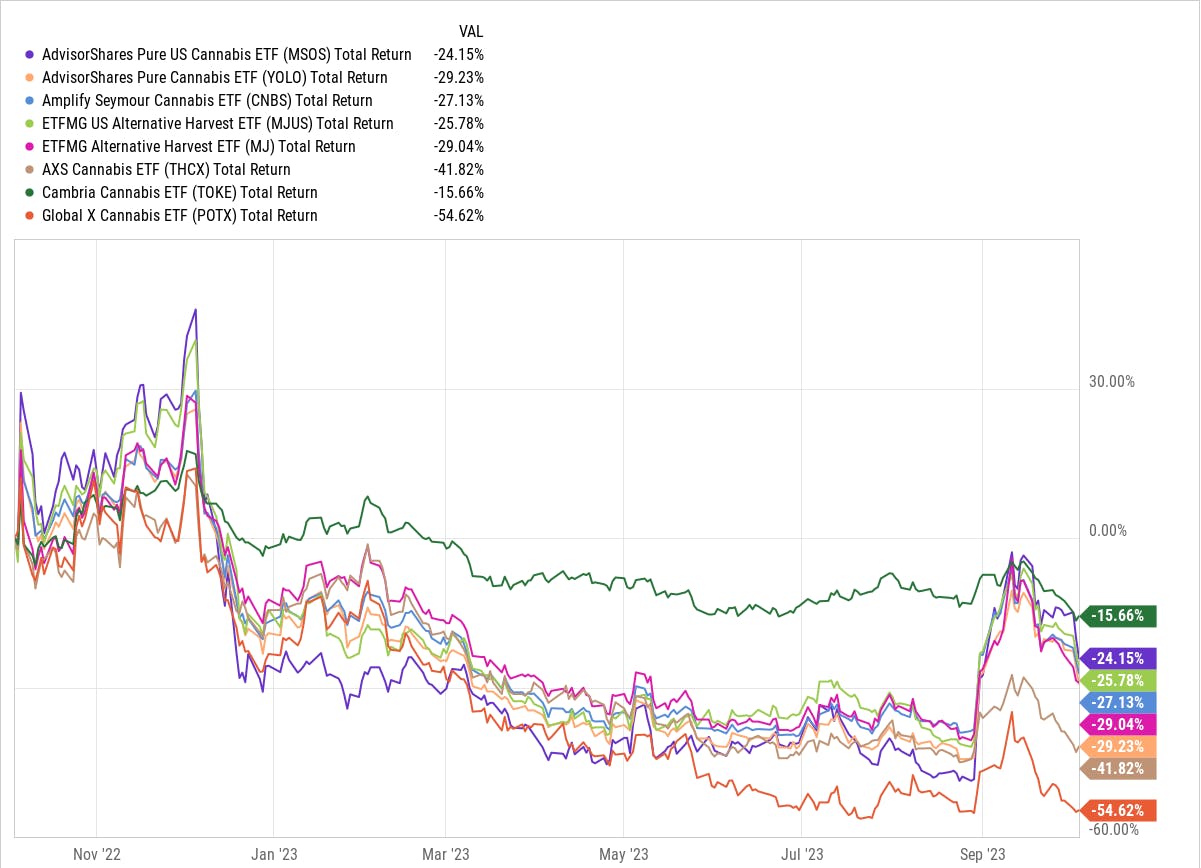Over the last few months, there have been progressive signals on current regulations affecting the cannabis industry, resulting in cannabis-related stocks and exchange-traded funds rising on the possibility of meaningful change within the industry.
A change in the regulatory landscape
At the end of August 2023, the U.S. Department of Health and Human Services made a formal recommendation to the U.S. Drug Enforcement Agency that cannabis be reclassified from Schedule 1 of the Controlled Substances Act, a classification for drugs that have a high potential for abuse and no recognized medicinal value, to the much less restrictive Schedule 3. Rescheduling cannabis to Schedule 3 would be monumental for state-legal cannabis businesses. Although rescheduling would not federally legalize the state-legal programs, it would eliminate the 280E tax burden, which explicitly prohibits businesses engaged in the trade or distribution of either Schedule 1 or Schedule 2 controlled substances from deducting expenses on their federal taxes, which currently applies to cannabis businesses.
The change in classification would also have secondary implications. Presently, the Senate Banking Committee is reviewing an updated version of the Secure and Fair Enforcement (SAFE) Banking Act; which is designed to prohibit federal regulators from punishing financial institutions for the sole reason that they choose to provide such services to cannabis companies, their owners, and their employees. Under current federal law, banks and credit unions face federal prosecution and penalties if they provide services to state-legal cannabis businesses because cannabis is still a Schedule 1 substance. Thus, the reclassification of cannabis would allow state-legal cannabis businesses the opportunity to utilize financial services providers, rather than operate as predominately cash enterprises.
The new version of the SAFE Banking Act, now known as the “Secure And Fair Enforcement Regulation Banking Act” or the SAFER Banking Act creates a safe harbor for depository institutions that wish to provide financial services to state-sanctioned marijuana businesses or service providers, however, it makes clear that federal banking agencies have a duty to ensure that the depository institutions supervised by those agencies (I) are operating in a safe and sound manner, and (II) have processes and procedures in place to identify fraudulent or illegal activity, whether activity occurs at a depository institution or through vendors or customers with which a depository institution has a relationship.
The Cannabis ETF Landscape
Given the recent progressive developments occurring within the cannabis regulatory space, the sentiment towards cannabis investments has been exceedingly positive and reflected in the performance of many cannabis ETFs. The following chart shows that the 1-month performance for many notable cannabis ETF solutions have been eye-catching. However, when a longer timeframe is taken, the performance of these solutions has been less than ideal.


While the present fervor around cannabis regulation has allowed for short-term gains, the long-term success of this industry will truly be predicated on the regulatory environment. For individuals who believe that the U.S. regulatory hurdles currently in place for cannabis will be lifted in the medium-to-long term future, then ETF solutions such as AdvisorShares Pure U.S. Cannabis ETF (Ticker: MSOS), ETFMG U.S. Alternative Harvest ETF (Ticker: MJUS), and Amplify Seymour Cannabis ETF (Ticker: CNBS) are worth considering, due to their broad exposure to cannabis producers and industry participants.
This content was originally published by our partners at ETF Central.
